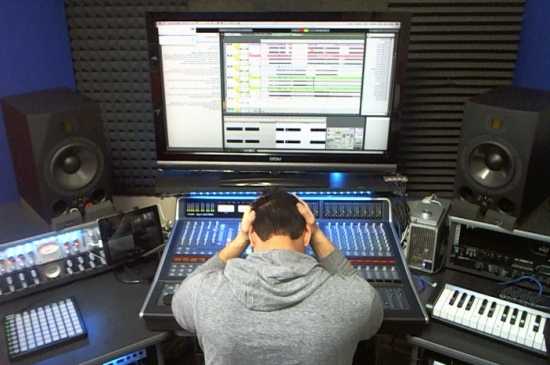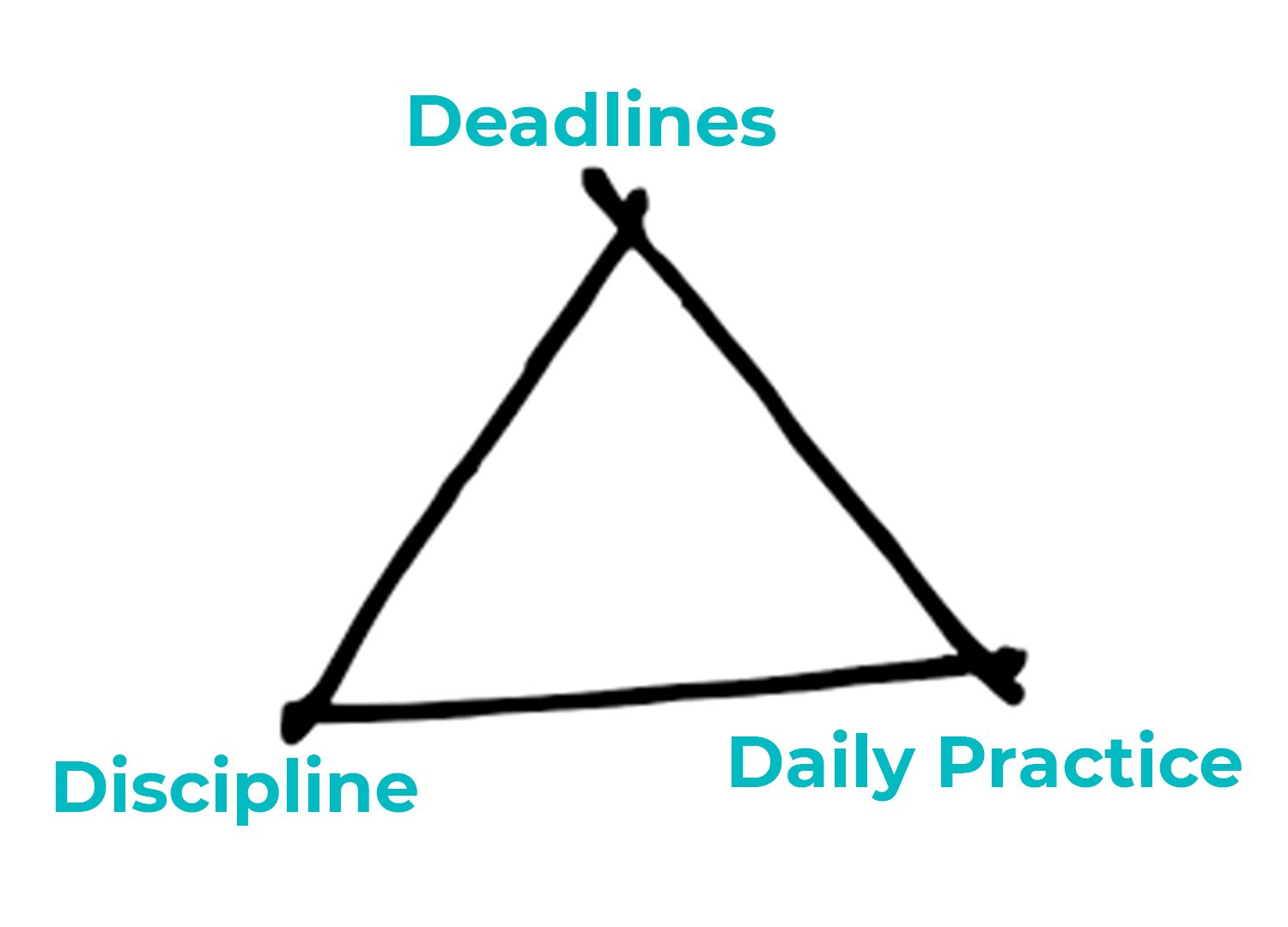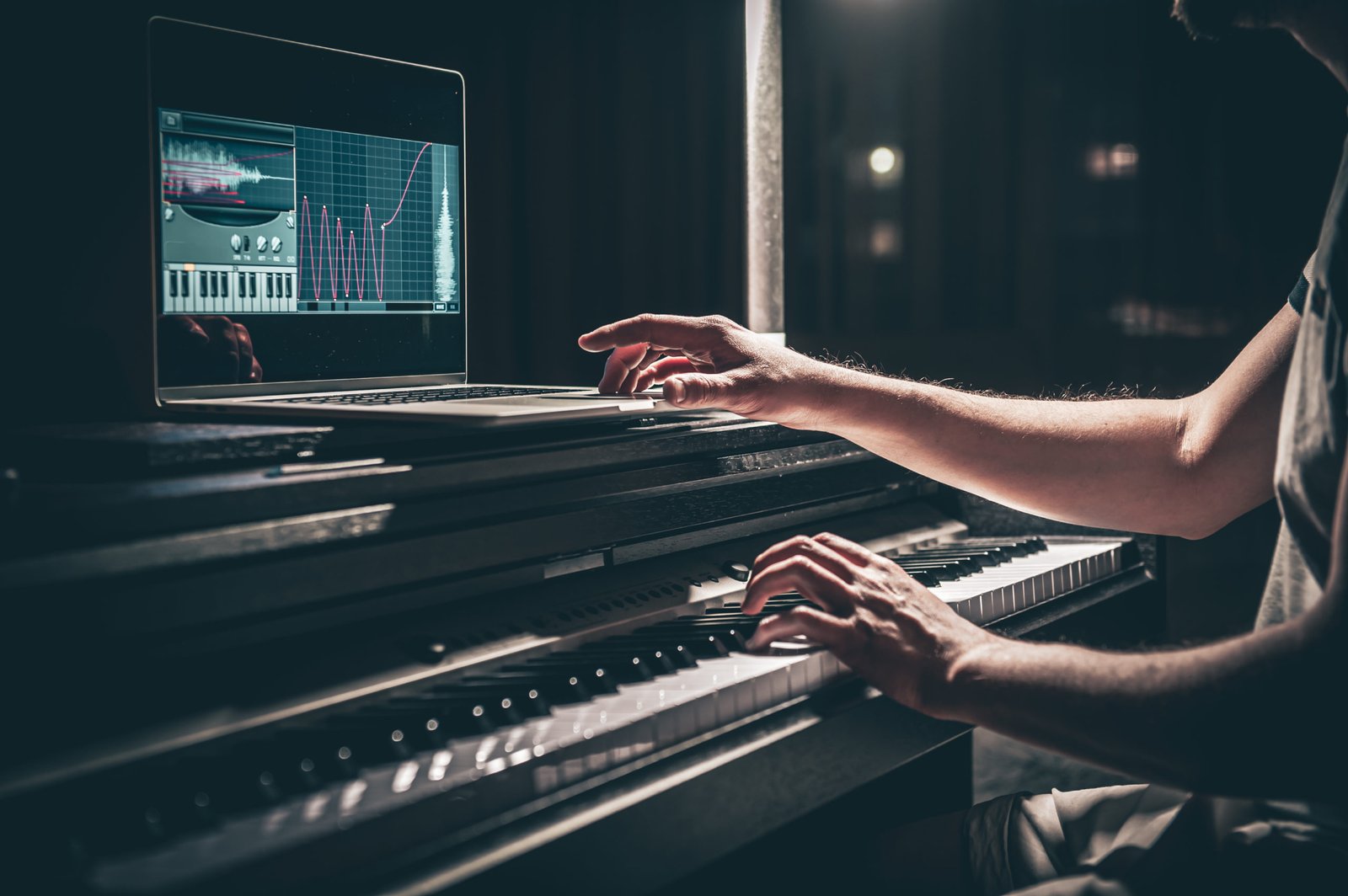Recently I published a video on our YouTube channel where I explained some of the techniques I regularly use to finish my music.
That video started an engaging online discussion with other music producers worldwide on the challenges and struggles we all face when trying to finalise our tracks. The discussions and interest in the topic encouraged me to write this article and further expand the theme examined in the YouTube video.
I can’t think of any artist who’s ever said that finishing music is a natural and painless process. More often than not, electronic music producers must find a way to overcome the urge to let things unfinished and move on to the next loop on a daily basis.
Sometimes grooves simply never become finished tracks. It’s part of the game: if we come up with 4 or 5 different loops, the chances are that a couple of them may never evolve into a complete electronic piece.
However, if you can’t finish a song no matter how hard you try, there are some tricks that will help you overcome this obstacle and get your music out there.
In this article, I’ll touch upon some of the topics discussed in the video and add some more tips and tricks to improve your workflow and help you hit the ground running.
So without further ado, let’s dive in!
The only reason why you can’t finish your music

Let’s start with the hard pill. If you’ve been making music for some time but don’t have anything published online yet, it’s because you’re afraid your music won’t be well-received or will be ignored.
All music producers have high expectations and secretly hope they’ll become successful overnight. However, this hope affects us deeply and leads us to delay the publication indefinitely.
As long as we keep all our tracks on our hard drives, we can dream and fantasise about our future careers. But once our music is out there, what excuses do we have for not being playing at Circoloco?
Publishing your first song is the single, most crucial step in your career as a music producer. Not only that, but your ability to accept the initial negative feedback (or no feedback at all) and still pursue your dream is what will make you successful in the long run.
The way to overcome this obstacle is simple: publish your music today.
There’ll be other challenges awaiting in the future, but publishing your first song is the first step toward a successful career in the music industry.
You can open a new Soundcloud account using a nickname if anonymity helps you feel more confident. No matter how or where you’re going to publish your music, having one of your songs out there will prove to yourself that you can do it.
The 3 Ds: Deadlines, Discipline, Daily practice

Alright, we started with the hard pill, so now comes the most tedious part of the music-making process. This article is going well, I think!
I came up with the “3 Ds” while wondering what gives me the energy and inspiration to keep making music, while life seems to constantly through things at me that require my attention.
It turns out that inspiration has little to do with my long-term music productivity. Instead, regular practice and organisation can pretty much define your skills as a music creator, streamline your creative process, and release music regularly.
Deadlines
Let’s start with the deadlines.
Giving yourself a deadline to complete a track is a powerful tool to encourage your creativity simply because it prevents you from endlessly revising your track and never publishing it.
There are dozens of online communities and challenges that give topics and deadlines for music competitions. Hence, regardless of the music genre you’re exploring, I’m sure you’ll be able to find a community that meets your needs.
Discipline
Next comes discipline. In the context of music production, discipline involves being constant and persistent while keeping our objective in mind, which is to release good music and be heard by others.
Discipline is something we all struggle with. It’s also hard to define, as it comprises a set of actions that differ from person to person. For instance, if you’re more creative early in the morning, the discipline you require will vary from an artist who works better at night.
The best way to tackle this issue is by trial and error. Try different music setups, different times of day, and longer or shorter music sessions, until you find the formula that works best for you. Once you have identified it, stick to it until you see the results.
Daily Practice
Daily practice is the most important aspect of discipline and the one that defines your dedication to your career as a music producer.
If you do something daily, you’re honing a craft. By compounding your skills, you’ll strengthen your ability as a producer and add variety to your compositions. Furthermore, you’ll become faster at making music, so you’ll release more and maximise your audience.
It may sound simplistic, but that’s all there is to it: making music every day will make you a better music producer in the long run.
Optimise your digital and physical workspace
If you think that you’ll achieve success by constantly adding new sounds to your music, let me stop you right there.
At best, constantly collecting musical instruments, samples and VSTs will ultimately drive you insane. In the worst-case scenario, it’ll overcomplicate your workflow and compromise your career.
Take a look at the artists who inspire you. Chances are, most of them use a limited and well-defined sonic palette that they expand or evolve over time. Why would they choose to stick to the same sounds when they upload all the sounds in the world on their DAW?

Keeping your sounds to a minimum will help you focus on what you have at your disposal without worrying about the next plugin or VST you should get. Legendary techno tracks were made using samples from other songs and a Roland TR-808, so I’m pretty sure you can make an EDM song with your DAW and the sounds that come with it.
Focusing on expanding your sound library will distract you from the most crucial act of making music. In the same way, too much hardware or too many musical instruments will make the music-making process more stressful than it should be.
Steps to Improve your Workflow and Finish Your Music
Here’s what you have to do to improve your workflow:
- Use just a MIDI keyboard and put aside all the other instruments you may have.
- Organise your favourite templates into coherent and easily-accessible folders.
- Avoid all distractions: no phones, no internet.
- Prepare your studio deck the night before, so you’ll be ready for your morning session. If you make music at night, prepare your studio before going to work.
- Warn people not to distract you during your creative sessions.
These simple tricks will help you make the most of your music sessions. Even if for just 30 minutes per day, you’ll have to be fully focused on your task to finish your music, so make sure nothing stands in between you and your goal.
And if you need more tips on improving your music production workflow, I’ve written another blog post on how to finish your music here.
Strive for progress, not perfection
Especially if you’re a beginner, you may have very high expectations on your first tracks. You spent hours listening to an artist you love and now want to create music that’s in line with their style.
Releasing successful music is much more than just creating a catchy melody. It’s about:
- Creating an engaging, dynamic 3-minute piece that can attract people’s attention.
- Finalising and adding the necessary effects to make it ready for worldwide distribution.
- Knowing your audience and what they expect from you.

Most of the music you hear results from a process that involves artists, audio engineers, and record labels, all of them working towards the same goal: creating successful music. If you don’t have this sort of support, it’s likely your music won’t sound as good as theirs.
Striving for success will force you to compare your music with music producers who may have a dozen technicians working for them and limitless funds. This comparison will ultimately discourage you and make you feel unfit for a music career.
Instead, you should focus on improving your music every day. It’s a long process, but one that will make you refine your skills over time and give you all the tools you need to create the music you’ve always wanted to make.
The more you idealise your song without actually finishing it, the more difficult it’ll become to finalise your music. So make sure you publish as many tracks as you can, even if you’re not 100% happy with them: focus on the process and the progress, and you’ll reach your goals.
The next-day revision

I always leave the revision to the next day, and I know it’s a trick that helps me analyse my tracks more thoroughly and get better results.
If you’ve ever tried to create, mix, master and publish a song in just one session, then you know how stressful it can be. I also noticed that the result often leaves me unsatisfied, as if I could have done more to make the song sound better.
When we’re making music, we’re so caught up in the process that we’re not able to examine a song with a fresh mind: as a result, we come up with songs that sound unfinished or rushed.
Most of the time, simply by listening to the song the day after and before publishing it, you’ll be able to identify the changes necessary to make it sound more professional.
So here are my suggestions:
- Make your song.
- Save it and listen to it the day after or in a few days.
- Write down all the issues you hear and fix them.
- Save and export a new copy of your track (myfaboulousEDMtrackVERSION2.wav).
- Listen to it again, and if necessary, write down the issues and start again.
Inspiration
If you want to be a successful music producer, I’ll assume you want to create music that you like and enjoy listening to. If that’s the case, you should have a playlist with music you love that inspires you.
This playlist is the compass that will lead you toward creating music you’ll be satisfied with. Whichever music platform you use, you should create a playlist to include all the tracks you want to draw inspiration from and use them to identify your style.
This doesn’t mean you should copy someone else’s style. On the contrary, you should take what you like the most from each of the artists you love and create your own unique style.
Inspiring playlists can also be incredibly useful when running out of ideas. If you feel uninspired, it’s great to have a playlist of music that can spark your creativity and help you start new compositions.
Handling a creative dry spell (writer’s block) to Finish Your Music

If you pursue a creative career, there comes a time when you can’t produce anything anymore. It’s a phase all creatives go through, and each person reacts to it differently.
If you’re at this stage of your music career, my suggestions to help you finish your music are:
- Put aside all your current projects and start a new one.
- Collaborate with other people.
- Step out of your comfort zone. If you always make EDM, try ambient or dub techno.
- If all else fails, take a break from music production.
Taking a break doesn’t mean you failed; on the contrary, you may come back with fresh ideas and renewed energy. While you’re not making music, do something you enjoy: read books, watch interesting movies, go to art exhibitions, or simply spend a night out with friends.
If you need to take a break from music, make sure you let your mind do other things, and don’t get anxious about not being productive. We all need a break every now and then.
Final thoughts

While starting a new song is an exciting process, finishing one is never easy: sometimes, it becomes so painful that you might feel like you don’t want to do it ever again.
It’s normal to feel this way. Furthermore, I’d say that the fact that you feel like this is the reason why you should continue making music.
Everything that’s valuable in life requires strength, dedication and passion, and music production is no different.
By following the few suggestions I examined in this article, you’ll be able to overcome any obstacles and make the music you love.
Good luck, and stay creative!
